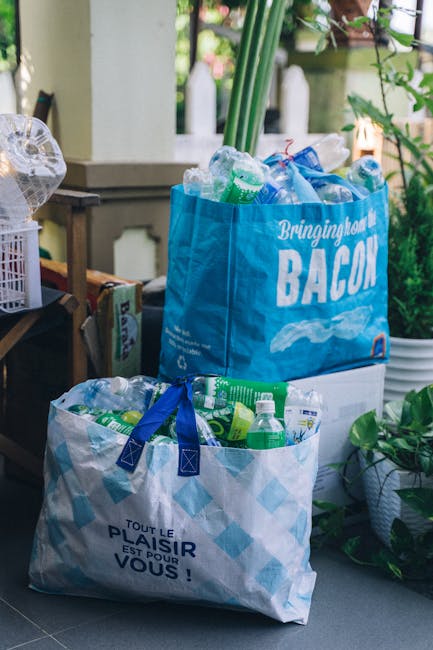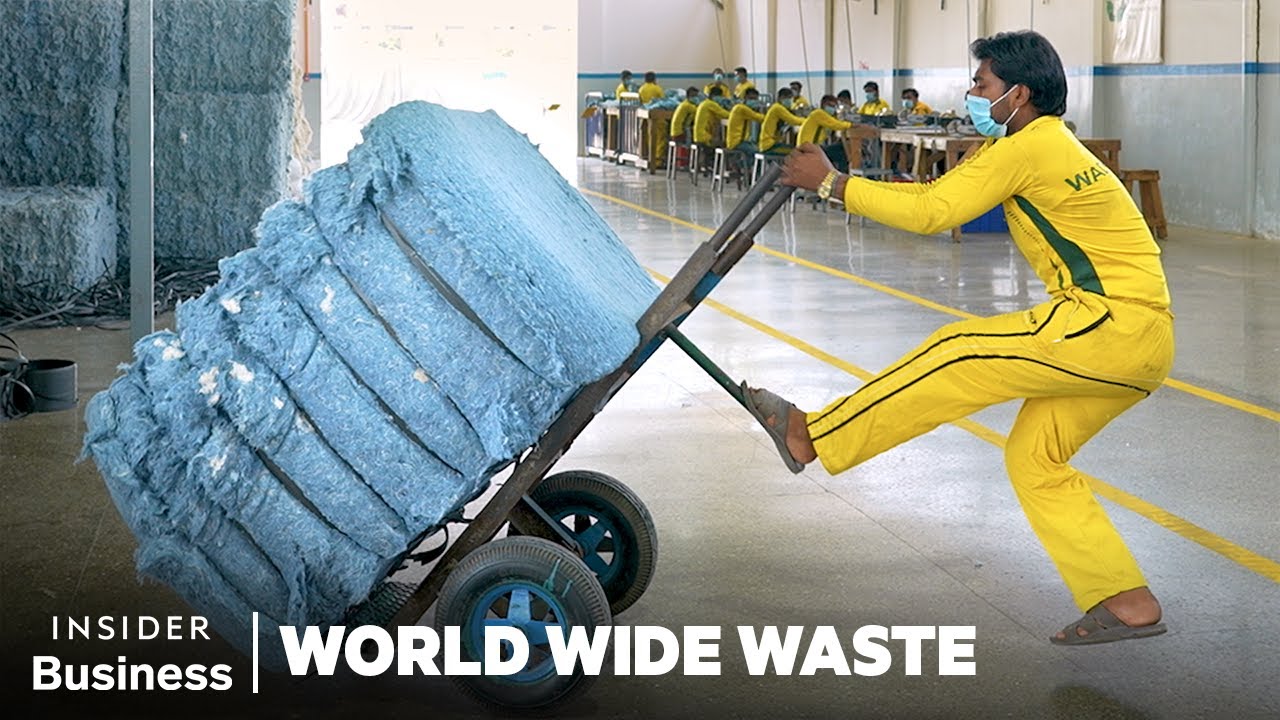Every year, over a billion pairs of jeans are produced, and many end up in landfills. This is a challenge partly because recycling cotton is a complex and costly affair. However, the fashion industry is striving for a greener approach, and Artistic Fabric Mills (AFM) in Pakistan is leading this change. They are pioneers in transforming old cotton into new denim in a country that imports more used clothes than any other globally. But how does this recycling process work?
In Karachi, massive facilities sort 25 metric tons of used clothes daily. Many of these garments, initially donated to charities like the Salvation Army, find their way to Pakistan’s grading centers. Items are categorized by quality and type, with lower-grade garments sold cheaply to recyclers for uses like insulation. AFM, seeing potential in what others discard, purchases used jeans for recycling. The company can only process denim that’s at least 98% cotton, avoiding stretch jeans mixed with synthetic materials.
Recycling jeans begins with cutting the garments into small pieces. AFM’s process requires about three pairs of used jeans to create one pair of recycled denim. However, the recycled fibers are too short to spin into yarn alone, necessitating the addition of virgin cotton. Initially, AFM could only blend 5% recycled material; now, it’s up to 30%. This blend ensures consistency in the fabric.
In the spinning room, the cotton blend is transformed into yarn. Although modernized, this process is rooted in ancient yarn-spinning techniques. After dyeing the fabric with recycled indigo, a process that significantly reduces water waste, the threads only turn blue upon exposure to air. This method is known as ‘skying’.
AFM prides itself on its eco-friendly practices, especially in a region grappling with water pollution and scarcity. Their giant treatment plant purifies around 300,000 gallons of wastewater daily, reusing up to 70% in the recycling process. In the weaving phase, dyed and white threads are combined to create the iconic twill pattern of jeans. The company’s commitment to sustainability extends to the use of cutting-edge software and laser technology in manufacturing, reducing the need for water and harmful chemicals.
Considering Pakistan’s reliance on the Indus River and the threat of extreme droughts, AFM’s efforts to conserve water are significant. It takes about 10,000 liters of water to make a single pair of jeans, so their sustainable methods have a considerable impact. Eco-friendly washers add a distressed look to the jeans, using less energy, water, and chemicals.
AFM, which began as a small garment shop in 1949, has evolved into a multi-million dollar company with a strong sustainability ethos. Their process isn’t just about making jeans; it’s about giving them a new lease on life while protecting the environment.

Ahmed Omer and his wife hadra Ahmed sold handmade leather hats and bags to Sailors out of their home in 1972 they opened their first garment Factory today it’s run by their son Iqbal Ahmed hydra’s role in the company would later Inspire her granddaughters pharah and Haya Iqbal to follow in her footsteps the two sisters are now directors for AFM my grandmother would actually manage the operations at that time and who into factories when women apply to AFM for jobs not just on a worker level but for management roles they do it because they know that it’s a possibility here AFM has also been ahead of the curve when it comes to manufacturing sustainable denim in 2015 it became one of the first companies in Pakistan to own this a cotton recycling plant from there producing recycled denim became priority number one AFM isn’t alone in its mission to recycle textiles other factories in Pakistan are investing in Cotton recycling as well even big name companies like h m have invested millions in New Recycling technology at The Company Store in Stockholm customers pay to have old clothes transformed into new ones but recycling a single garment can take multiple days h m wants to move to a hundred percent recycled or sustainably sourced materials by 2030 but scaling up recycled production is expensive AFM has a decades-long head start the cost of its factories though massive were spread out over many years at the time nobody was doing it no customers even understood why it was a necessity but it was my father’s Vision that he stuck his ground and he made this massive investment because he could tell where the world was heading AFM says it has the capacity to create half a million pairs of jeans every month but its actual production is around three hundred thousand for recycled genes to become a large-scale success more companies need to get involved right now less than one percent of all clothes are turned into recycled garments an even simpler solution is to buy less I firmly believe that consuming less but of better quality is the way forward and that’s because this is not to discourage people from buying more but if they buy better and they buy better quality once somebody is done with the garments that can always be resold second hand or donated it just increases the life of a garment if you buy better quality
Read More: Jeans Revolution: Master the Art of Wearing Them Right






Leave a Comment